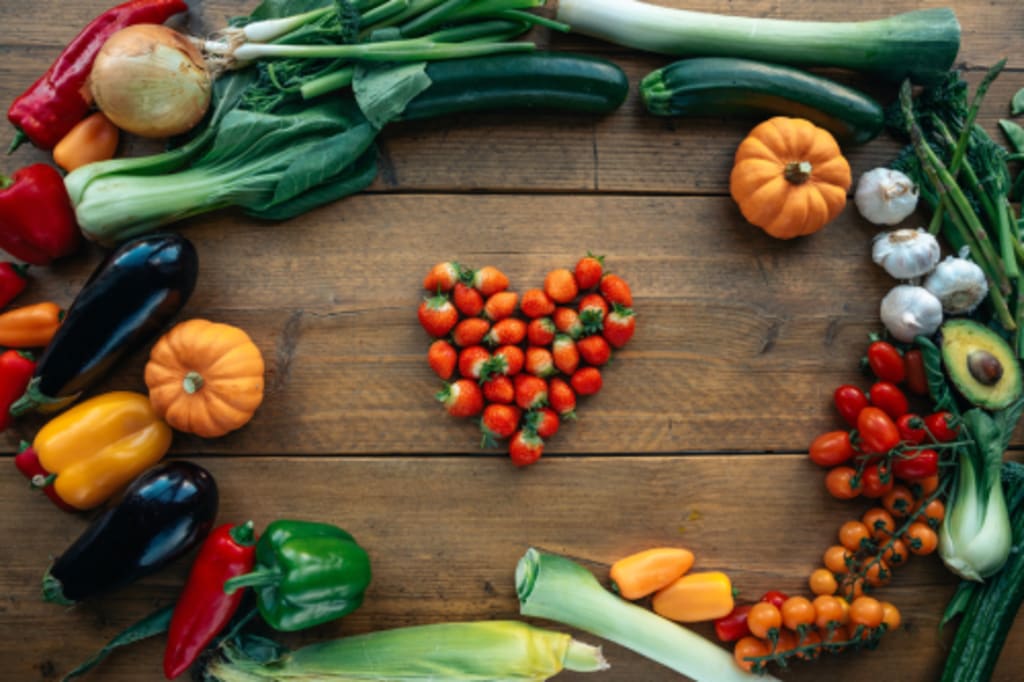How Healthy is Juicing Vegetables
"Exploring the Pros and Cons of Juicing Vegetables"

Juicing vegetables has become a popular way to consume a large amount of nutrients in a short period of time. However, there are debates around whether juicing is a healthy way to consume vegetables or not. In this blog post, we will dive deep into the benefits and drawbacks of juicing vegetables and help you determine whether it's a healthy option for you.
Benefits of Juicing Vegetables
1.Improved Nutrient Absorption
Juicing vegetables can help improve nutrient absorption because the fiber is removed during the juicing process. When you consume vegetables in their whole form, your body must break down the fiber to access the nutrients. However, when vegetables are juiced, the fiber is removed, making it easier for your body to absorb the nutrients. This is especially important for people with digestive issues or those who struggle to consume enough vegetables.
2.Increased Vegetable Intake
Juicing vegetables can help increase your vegetable intake, especially if you have a difficult time consuming enough vegetables in your diet. Juicing allows you to consume a larger quantity of vegetables in one sitting than you might typically eat in a meal. This can help ensure that you are getting the recommended daily intake of vegetables and all the nutrients they provide.
3.Convenient and Time-Saving
Juicing vegetables can be a convenient and time-saving option for those with a busy lifestyle. Preparing and consuming a juice can take less time than cooking and eating a meal. Additionally, many people find it easier to take a juice with them on-the-go or to have as a snack throughout the day.
4.Hydration
Juicing vegetables can be a great way to stay hydrated, especially if you're not a fan of plain water. Vegetables like cucumbers, celery, and lettuce have high water content, which can help replenish fluids lost throughout the day.
5.Boosts Immune System
Many vegetables are packed with immune-boosting nutrients like vitamins A and C, which can help keep your immune system strong. Juicing vegetables that are high in these nutrients, like kale, spinach, and broccoli, can help support your immune system and keep you healthy.
Drawbacks of Juicing Vegetables
1.Lack of Fiber
While juicing vegetables can make it easier for your body to absorb the nutrients, it also removes the fiber. Fiber is essential for digestive health and can help regulate blood sugar levels, lower cholesterol, and promote feelings of fullness. Removing fiber from your diet can lead to digestive issues and may not be suitable for those with existing digestive problems.
2.High Sugar Content
Vegetable juice can be high in sugar, especially if it contains sweet vegetables like carrots or beets. While the sugar in vegetable juice comes from natural sources, it can still add up quickly if you consume large amounts of juice. This can be a concern for those who are trying to manage their blood sugar levels or are on a low-carbohydrate diet.
3.Expensive
Juicing vegetables can be expensive, especially if you are using organic vegetables. To make a single glass of vegetable juice, you may need to use several vegetables, which can quickly add up in cost. Additionally, juicers can be expensive to purchase initially, which may not be feasible for everyone.
4.Time-Consuming
Juicing vegetables can be time-consuming, especially if you are preparing a large batch of juice. It can take time to clean and chop the vegetables and then to juice them. Additionally, cleaning the juicer after use can be a hassle, which may discourage some people from juicing regularly.
How to Make Juicing Healthier
If you decide to juice vegetables, there are several things you can do to make it healthier: Include Whole Vegetables in Your Diet
In conclusion, juicing vegetables can be a convenient and healthy way to increase your vegetable intake and absorb more nutrients. However, it's important to be aware of the drawbacks, such as the lack of fiber and potential high sugar content. To make juicing healthier, consider including whole vegetables in your diet, using a variety of vegetables, and limiting the amount of sweet vegetables you juice.
If you're considering juicing vegetables, it's important to consult with your doctor or a registered dietitian to ensure it's a suitable option for you. Additionally, be mindful of the amount of juice you consume and ensure it's part of a balanced diet.
In summary, juicing vegetables can be a healthy addition to your diet if done correctly. Incorporating it into your lifestyle can help improve nutrient absorption, increase vegetable intake, and provide a convenient and time-saving way to stay hydrated and boost your immune system. So go ahead, juice those vegetables, but remember to do it in moderation and alongside a balanced diet.
About the Creator
Healthy Juice Network
At Healthy Juice Network, our mission is to share and promote optimal wellness and vitality. Our goal is to make it easy for people to incorporate healthy juices into their daily routines






Comments
There are no comments for this story
Be the first to respond and start the conversation.